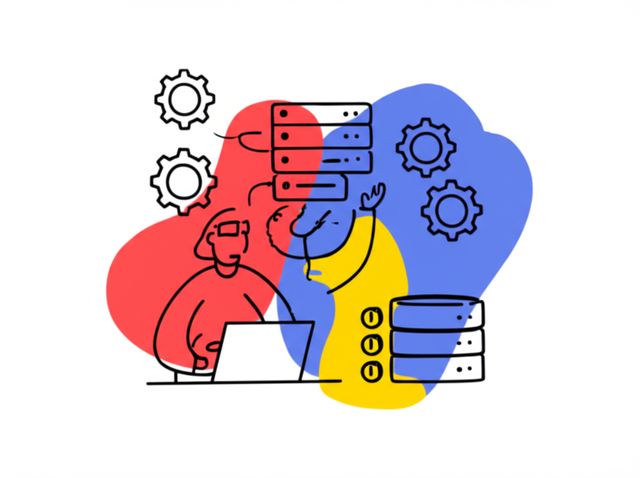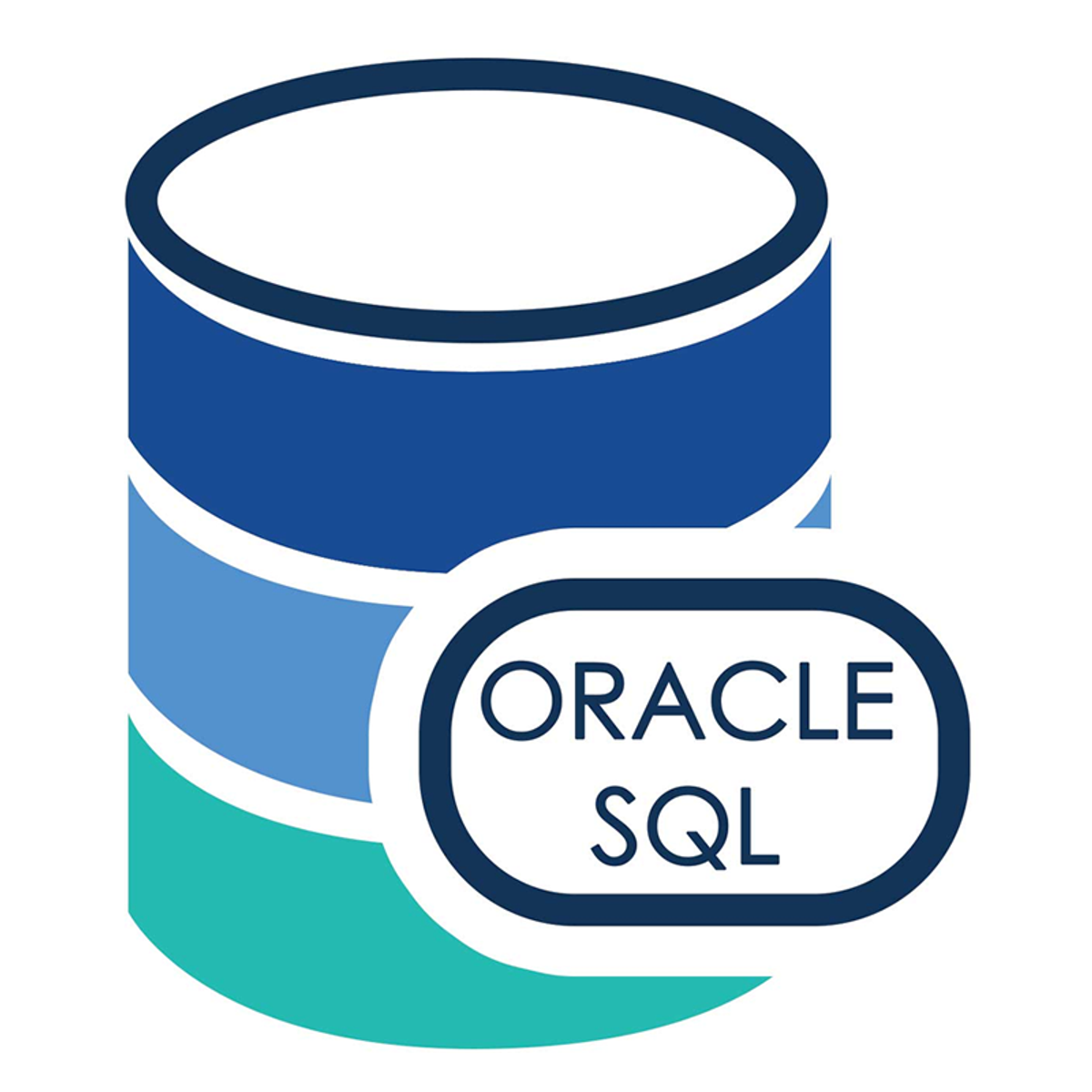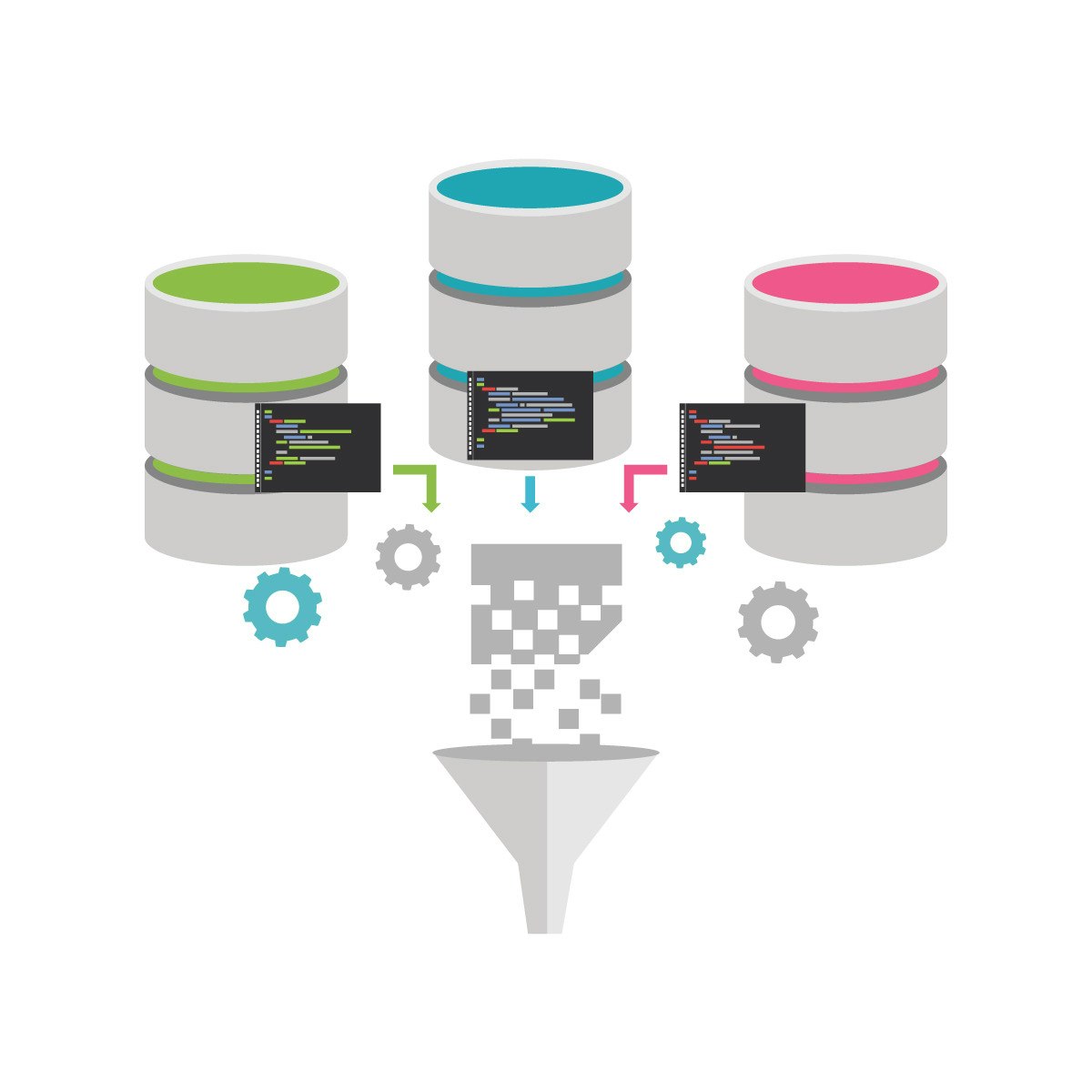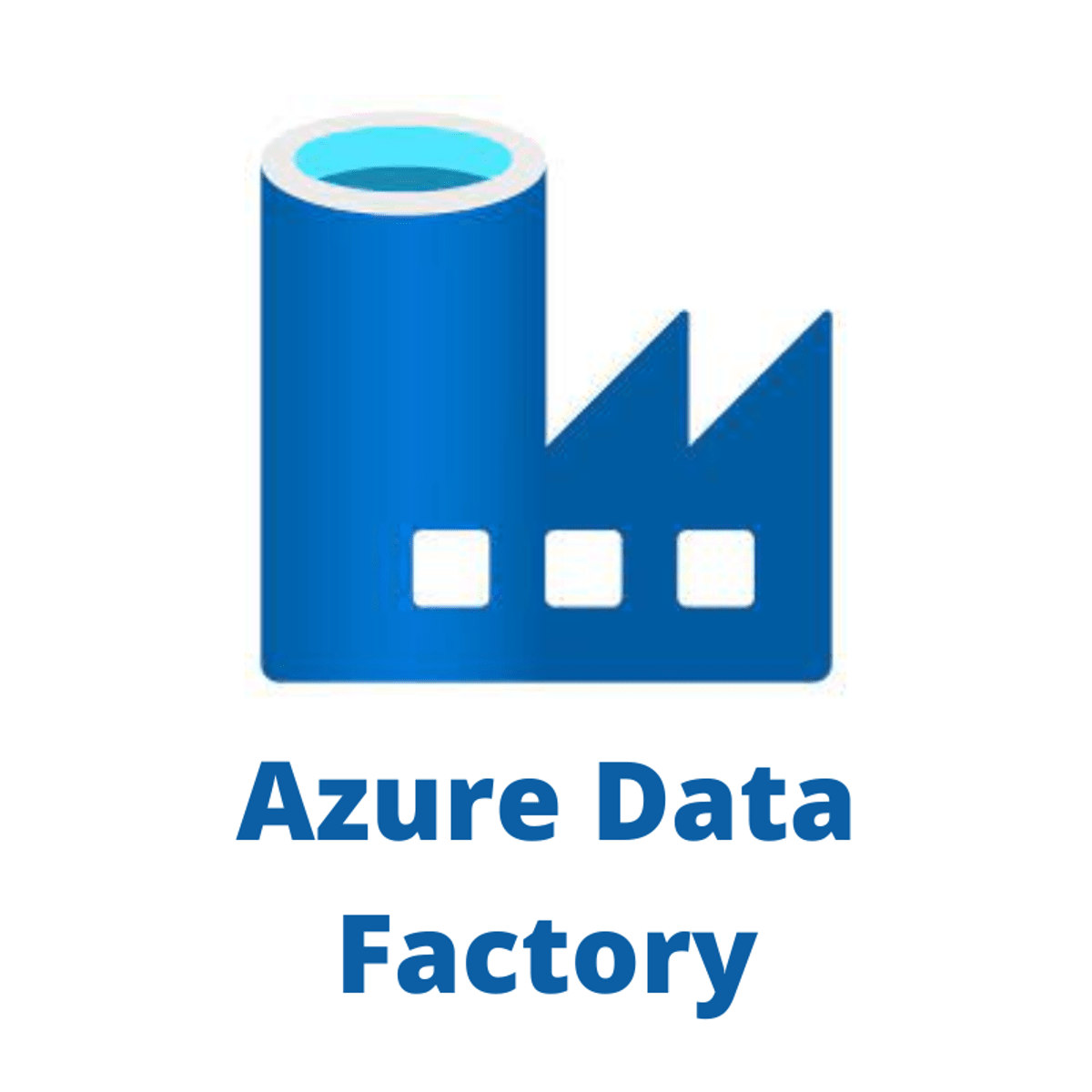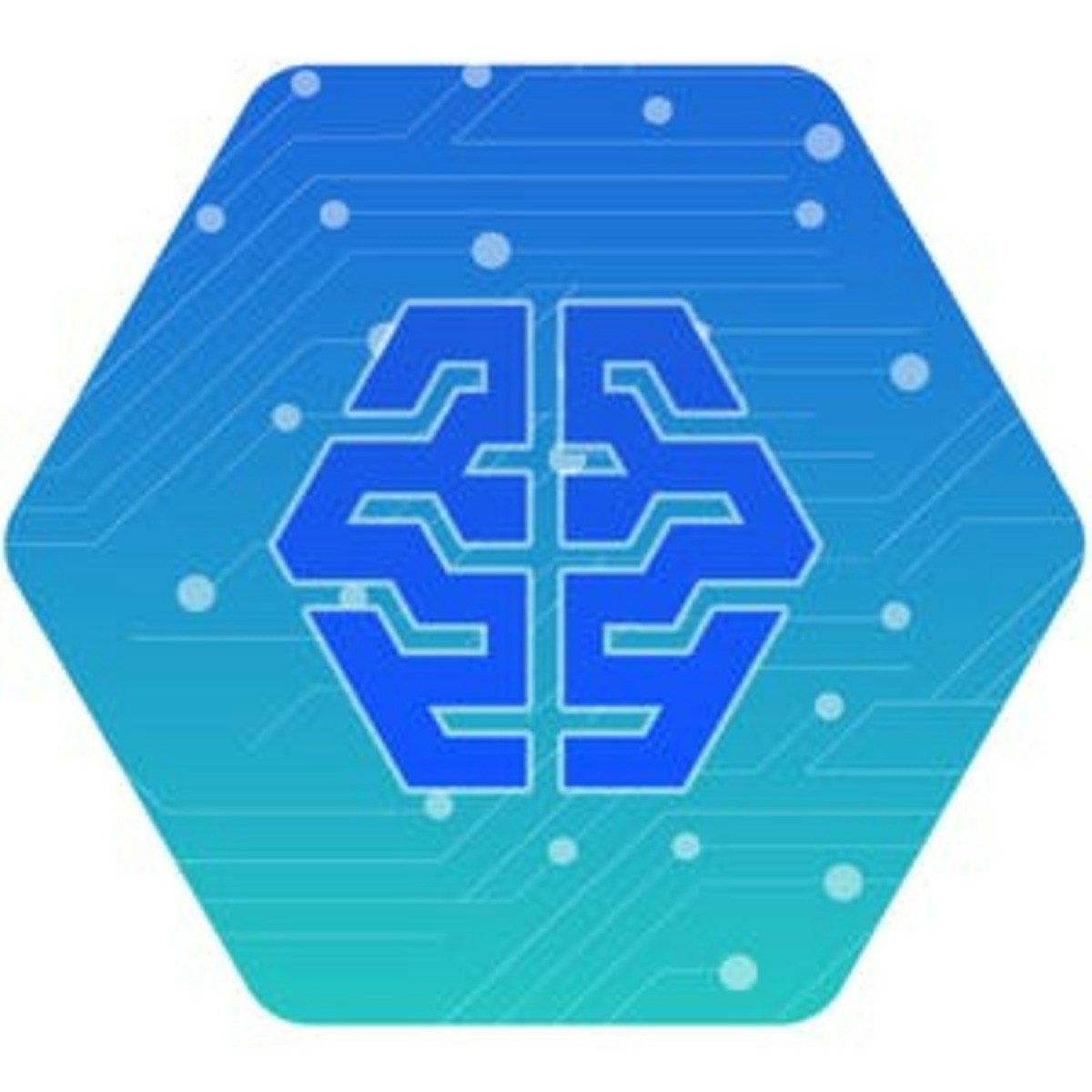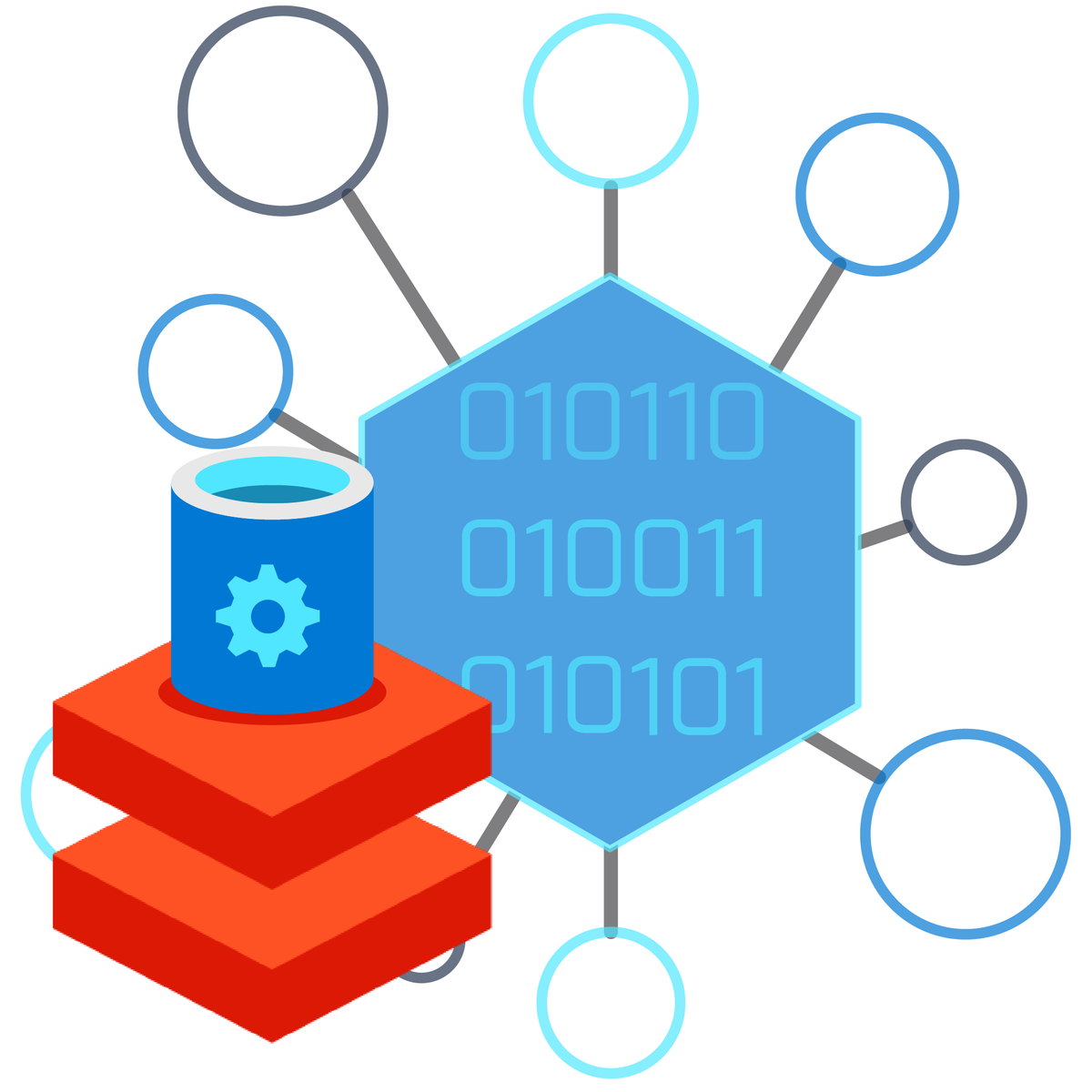Data Warehouse Engineer
vigating the Landscape: A Comprehensive Guide to Becoming a Data Warehouse Engineer
A Data Warehouse Engineer plays a pivotal role in the modern data-driven enterprise. At a high level, these professionals are responsible for designing, building, and maintaining the systems that collect, store, and manage large volumes of data from various sources. This data is then transformed and made accessible for analysis, reporting, and business intelligence, ultimately empowering organizations to make informed decisions. The work of a Data Warehouse Engineer is crucial for unlocking the value hidden within an organization's data assets.
The field offers intellectually stimulating challenges and the opportunity to work with cutting-edge technologies. Imagine being the architect behind a system that allows a retail giant to understand customer behavior in real-time, or enabling a healthcare provider to identify trends that could lead to life-saving discoveries. These are the kinds of impactful projects Data Warehouse Engineers are involved in. Furthermore, the constant evolution of data technologies ensures a dynamic and ever-learning career path.
Definition and Core Responsibilities
Understanding the role of a Data Warehouse Engineer begins with a clear definition of data warehousing and its significance in today's businesses. Following that, we delve into the day-to-day tasks and overarching duties that define this critical tech profession.
The Essence of Data Warehousing in Modern Business
At its core, a data warehouse is a centralized repository that integrates data from various disparate sources within an organization. Think of it as a highly organized library for all of a company's historical data. This is distinct from operational databases, which are designed for real-time transaction processing. Instead, a data warehouse is optimized for query and analysis, enabling businesses to gain insights from their data. Modern enterprises rely heavily on data warehousing to consolidate information from sales, marketing, finance, and other departments into a single, unified view.
This unified view is paramount for effective decision-making. For instance, a retail company might use its data warehouse to analyze sales trends across different regions, identify popular products, and optimize inventory management. Similarly, a financial institution could leverage its data warehouse to detect fraudulent activities or assess credit risk. The ability to access and analyze comprehensive, historical data empowers organizations to understand past performance, identify current opportunities, and forecast future outcomes.
Data warehouses are foundational to business intelligence (BI) and analytics initiatives. They provide the clean, structured, and reliable data that BI tools and data analysts need to generate reports, create dashboards, and perform complex analyses. Without a well-designed data warehouse, organizations would struggle to make sense of the vast amounts of data they collect, hindering their ability to compete effectively in the modern business landscape. The global data warehousing market is projected to see significant growth, underscoring its increasing importance.
Key Duties: ETL, Data Modeling, and More
A primary responsibility of a Data Warehouse Engineer is the design and implementation of Extract, Transform, Load (ETL) processes. This involves extracting data from various source systems (like CRM software, ERP systems, or transactional databases), transforming it into a consistent and usable format, and loading it into the data warehouse. This transformation step is critical for ensuring data quality and consistency, as source systems often have different data structures and formats.
Data modeling is another core function. Data Warehouse Engineers design the logical and physical structure of the data warehouse, defining how data is organized, stored, and related. This involves creating schemas, tables, and relationships that optimize data retrieval and analysis. Effective data modeling ensures that the data warehouse can efficiently support the organization's analytical needs and scale as data volumes grow. Star schema and snowflake schema are common modeling techniques you'll encounter.
Beyond ETL and data modeling, Data Warehouse Engineers are also responsible for ensuring the overall health and performance of the data warehouse. This includes monitoring system performance, troubleshooting issues, implementing backup and recovery procedures, and optimizing queries for faster execution. They work to maintain data integrity, ensuring that the information stored in the warehouse is accurate, reliable, and secure.
For those looking to understand the practical application of these core responsibilities, several online courses offer hands-on experience. These courses often cover the entire lifecycle of a data warehousing project, from initial design to implementation and maintenance.
The Engine Behind Business Intelligence and Analytics
Data Warehouse Engineers are instrumental in powering an organization's business intelligence (BI) and analytics capabilities. They build and maintain the infrastructure that allows data analysts, data scientists, and business users to access and interpret vast amounts of data. Essentially, the data warehouse serves as the single source of truth, providing a reliable foundation for all data-driven decision-making.
The data pipelines constructed by these engineers ensure that relevant data is collected, cleaned, and made available in a timely and efficient manner. This enables BI teams to create dashboards, generate reports, and perform ad-hoc analyses that reveal key business insights. For example, marketing teams can analyze customer data to personalize campaigns, while operations teams can monitor key performance indicators to optimize processes.
Furthermore, the structured and well-organized data within a warehouse is crucial for more advanced analytics, such as predictive modeling and machine learning. Data scientists rely on this high-quality data to build and train models that can forecast future trends, identify anomalies, or automate complex tasks. The work of Data Warehouse Engineers directly supports these advanced analytical endeavors, enabling organizations to unlock deeper insights and gain a competitive edge.
To gain a foundational understanding of how data warehousing supports BI and analytics, consider exploring introductory courses on the subject. These can provide a clearer picture of the entire data pipeline and the role of the engineer within it.
Ensuring Data Integrity and Optimal System Performance
Maintaining data integrity is a critical responsibility for Data Warehouse Engineers. This means ensuring that the data stored in the warehouse is accurate, consistent, complete, and trustworthy. Poor data quality can lead to flawed analyses and incorrect business decisions, undermining the very purpose of the data warehouse. Engineers implement various processes and checks to validate data as it enters the warehouse and to monitor its quality over time.
System performance is another key area of focus. Data warehouses often store massive datasets, and queries against this data need to execute efficiently to provide timely insights. Engineers are responsible for optimizing database performance, tuning queries, and ensuring that the underlying hardware and software are configured correctly. They monitor system load, identify bottlenecks, and implement solutions to improve speed and responsiveness.
This involves tasks such as index management, partitioning strategies, and resource allocation. As data volumes and user concurrency grow, scalability becomes a significant concern. Data Warehouse Engineers must design systems that can scale effectively to meet increasing demands without compromising performance or data integrity. Regular maintenance, updates, and proactive monitoring are essential to keep the data warehouse running smoothly and reliably.
Foundational books on data warehousing often dedicate significant portions to the principles of data integrity and performance optimization. These texts can provide in-depth knowledge of the techniques and best practices used in the field.
Essential Technical Skills
A Data Warehouse Engineer requires a robust set of technical skills to design, build, and maintain complex data systems. Mastery of programming languages, database systems, ETL tools, cloud platforms, and data modeling techniques forms the bedrock of this profession.
Proficiency in Programming Languages (SQL, Python, Java)
Structured Query Language, or SQL, is the cornerstone programming language for any Data Warehouse Engineer. It is used for querying, manipulating, and defining data within relational databases, which are often the core of data warehousing solutions. A deep understanding of SQL is essential for writing efficient queries, creating and managing database objects, and performing complex data transformations. Advanced SQL skills, including window functions, common table expressions (CTEs), and stored procedures, are highly valued.
Python has also become an indispensable language in the data engineering toolkit. Its versatility, extensive libraries (like Pandas for data manipulation and PySpark for distributed computing), and ease of use make it ideal for scripting ETL processes, automating tasks, and integrating with various data sources and APIs. Many modern data warehousing tools and platforms offer Python SDKs, further increasing its relevance.
While perhaps less universally required than SQL and Python for all data warehousing roles, Java proficiency can be beneficial, particularly in environments utilizing certain big data technologies or established enterprise systems. Java's strong performance and scalability make it suitable for developing complex data processing applications and integrating with a wide array of enterprise software. For engineers working with specific ETL tools or platforms built on Java, this skill becomes even more critical.
Numerous online courses are available to help aspiring engineers develop strong programming skills in these key languages. Many offer hands-on exercises and projects to solidify understanding.
For those who prefer learning from books, several comprehensive guides cover SQL and its application in data analysis and database management.
Expertise in Database Systems (Snowflake, Redshift, BigQuery)
A Data Warehouse Engineer must possess strong expertise in various database systems, especially those designed for analytical workloads. Modern cloud-based data warehouses like Snowflake, Amazon Redshift, and Google BigQuery have become industry standards. These platforms offer scalability, performance, and cost-effectiveness, making them popular choices for organizations of all sizes. Understanding the architecture, features, and best practices for each of these systems is crucial.
Familiarity with traditional on-premises relational database management systems (RDBMS) like Oracle, SQL Server, and PostgreSQL also remains valuable. Many organizations still rely on these systems, and engineers often need to integrate them with newer cloud platforms or migrate data from them. A solid understanding of database administration, performance tuning, and security for these systems is beneficial.
Beyond relational databases, exposure to NoSQL databases (such as MongoDB or Cassandra) can be advantageous, especially as data warehouses increasingly need to ingest and process semi-structured and unstructured data. While not always a primary responsibility, understanding how these systems work and how to integrate them into a broader data architecture is a valuable skill. The ability to choose the right database technology for a specific use case is a hallmark of an experienced engineer.
Online courses offer practical training on specific database systems, including cloud data warehouses. These can help you gain hands-on experience with provisioning, managing, and querying these platforms.
Mastery of ETL Tools (Informatica, Talend, Airflow)
Proficiency in ETL (Extract, Transform, Load) tools is fundamental for Data Warehouse Engineers. These tools automate the process of moving and transforming data from source systems to the data warehouse. Enterprise-grade ETL solutions like Informatica PowerCenter and Talend have been mainstays in the industry for years, offering robust features for data integration, transformation, and workflow management.
In addition to traditional ETL tools, open-source workflow management platforms like Apache Airflow have gained immense popularity. Airflow allows engineers to programmatically author, schedule, and monitor complex data pipelines. Its flexibility, scalability, and vibrant community make it a preferred choice for many modern data teams. Understanding how to design, build, and manage ETL pipelines using such tools is a core competency.
Cloud providers also offer their own native ETL services, such as AWS Glue, Azure Data Factory, and Google Cloud Dataflow. Familiarity with these services is increasingly important as more organizations migrate their data infrastructure to the cloud. These tools are often tightly integrated with other cloud services, offering a streamlined approach to building data pipelines in a cloud environment. The ability to select and effectively use the appropriate ETL tool or service for a given scenario is a key skill.
Many online learning platforms provide courses specifically focused on popular ETL tools and data pipeline orchestration.
To deepen your understanding of ETL processes and best practices, consider exploring books dedicated to the subject.
Familiarity with Cloud Platforms (AWS, Azure, GCP)
In today's technology landscape, familiarity with major cloud platforms – Amazon Web Services (AWS), Microsoft Azure, and Google Cloud Platform (GCP) – is virtually essential for Data Warehouse Engineers. These platforms offer a wide array of services for data storage, processing, analytics, and machine learning, forming the backbone of many modern data warehousing solutions.
Engineers should understand the core data services offered by each platform, such as AWS S3, Redshift, and Glue; Azure Blob Storage, Synapse Analytics, and Data Factory; and Google Cloud Storage, BigQuery, and Dataflow. This includes knowing how to provision, configure, and manage these services, as well as how to integrate them to build scalable and resilient data pipelines.
Beyond specific data services, a broader understanding of cloud computing concepts is also important. This includes knowledge of virtual machines, networking, security best practices, identity and access management (IAM), and cost optimization strategies. As organizations increasingly adopt multi-cloud or hybrid cloud architectures, the ability to work across different cloud environments is becoming a valuable asset.
Numerous courses are available to help you learn the intricacies of each major cloud platform, often leading to valuable certifications.
Understanding Data Modeling Techniques
Data modeling is a critical skill for Data Warehouse Engineers, as it forms the blueprint for how data is organized and accessed within the warehouse. A well-designed data model ensures data consistency, facilitates efficient querying, and supports the evolving analytical needs of the business. Engineers must be proficient in various data modeling techniques and understand their trade-offs.
Commonly used techniques include dimensional modeling, which employs concepts like fact tables and dimension tables to organize data for business intelligence and reporting. The star schema and snowflake schema are two popular dimensional modeling approaches. Understanding how to design these schemas, identify appropriate grains, and define relationships between tables is essential for building effective data warehouses.
Engineers also need to be familiar with normalization and denormalization techniques. Normalization helps to reduce data redundancy and improve data integrity in transactional systems, while denormalization is often applied in data warehouses to improve query performance by adding redundant data. Knowing when and how to apply these techniques is crucial for optimizing the data warehouse for analytical workloads.
Beyond specific techniques, a strong conceptual understanding of database design principles, entity-relationship modeling (ERM), and data governance best practices is important. Data Warehouse Engineers often work closely with business stakeholders to understand their requirements and translate them into effective data models. The ability to communicate complex data concepts clearly is also a valuable asset.
Many comprehensive books on data warehousing dedicate significant sections to data modeling principles and practices. These can serve as invaluable resources for mastering this skill.
Formal Education Pathways
While practical skills and experience are paramount, a strong educational foundation can provide a significant advantage for aspiring Data Warehouse Engineers. Certain degree programs and specialized coursework can equip individuals with the theoretical knowledge and analytical thinking necessary to excel in this field.
Degrees That Build a Strong Foundation: Computer Science and Information Systems
A bachelor's degree in Computer Science is a common and highly relevant educational pathway for aspiring Data Warehouse Engineers. This degree typically provides a strong foundation in programming fundamentals, data structures, algorithms, database management, and software engineering principles – all of which are directly applicable to the role. Courses in operating systems and computer networks can also be beneficial for understanding the underlying infrastructure.
Another excellent option is a degree in Information Systems or Management Information Systems (MIS). These programs often bridge the gap between business and technology, providing students with an understanding of how information technology can be used to solve business problems. Coursework typically includes database design, systems analysis and design, project management, and business analytics, which are all highly relevant to data warehousing.
Other related fields of study, such as Software Engineering, Data Science, or even Mathematics and Statistics (with a strong minor in computer science), can also provide a solid foundation. The key is to acquire a strong analytical mindset, problem-solving skills, and a good understanding of database technologies and programming. Regardless of the specific degree, seeking out internships or co-op opportunities in data-related roles can provide invaluable practical experience.
Graduate Programs with a Data Engineering Focus
For individuals seeking to deepen their expertise or transition into data engineering from a related field, pursuing a graduate degree can be a valuable step. Master's programs in Data Science, Business Analytics, or Computer Science with a specialization in data engineering or big data are increasingly common. These programs often offer advanced coursework in distributed systems, cloud computing, machine learning, and advanced database technologies.
A master's degree can provide a more specialized and in-depth understanding of the complex challenges involved in designing and managing large-scale data systems. Many programs also include capstone projects or research opportunities, allowing students to apply their knowledge to real-world problems. This can be particularly beneficial for those aiming for more senior or specialized roles in data warehousing and data architecture.
When considering graduate programs, look for curricula that emphasize hands-on experience with modern data tools and platforms. Programs that offer specializations in areas like cloud data warehousing, big data analytics, or ETL processes can be particularly relevant. Furthermore, consider programs with strong industry connections, as these can lead to networking opportunities and potential job placements.
The Role of Research in Distributed Systems and Data Management
While not a direct requirement for most Data Warehouse Engineer positions, a background or understanding of research in distributed systems and data management can be a significant asset, especially for those working on cutting-edge or large-scale data warehousing solutions. Research in these areas often explores new techniques for data storage, processing, querying, and security in distributed environments.
Understanding the theoretical underpinnings of how large-scale systems operate, how data is partitioned and replicated, and how consistency and fault tolerance are achieved can provide valuable insights when designing and troubleshooting complex data warehouses. This knowledge is particularly relevant for cloud-based data warehouses, which are inherently distributed systems.
For individuals interested in pushing the boundaries of data warehousing technology or pursuing roles in research and development, a PhD in Computer Science with a focus on databases, distributed systems, or big data may be a viable path. However, for most practitioner roles, a strong understanding of applied concepts and practical experience will be more critical than deep theoretical research contributions.
Key Coursework to Prioritize
Regardless of the specific degree program, certain areas of coursework are particularly beneficial for aspiring Data Warehouse Engineers. Prioritize courses that cover database design and management in depth. This includes relational database theory, SQL programming, data modeling (ERD, dimensional modeling), and database administration fundamentals.
Programming courses are also essential. Focus on languages like SQL, Python, and potentially Java. Courses that cover data structures and algorithms will provide a strong foundation for writing efficient code and understanding data processing techniques. Software engineering principles, including version control (like Git), testing, and agile development methodologies, are also valuable.
Consider electives or specializations in areas like big data technologies (Hadoop, Spark), cloud computing (AWS, Azure, GCP), data mining, machine learning, and business intelligence. Courses that involve hands-on projects using real-world datasets and industry-standard tools will be particularly impactful in preparing you for the challenges of a Data Warehouse Engineer role.
To supplement formal education, many online courses focus on the specific skills and technologies used in data warehousing. These can be an excellent way to gain practical experience with tools and platforms that may not be covered in depth in a traditional academic curriculum. OpenCourser provides a vast catalog to explore data science courses that often overlap with data warehousing principles.
Online Learning and Certification
For those charting a course into data warehousing outside traditional academic routes, or for professionals seeking to upskill, online learning and certifications offer flexible and targeted pathways. These resources can be instrumental in acquiring specialized knowledge and demonstrating proficiency to potential employers.
The Value of Specialized Data Engineering Certifications
Specialized data engineering certifications can significantly enhance your resume and validate your skills to potential employers. Certifications from reputable organizations or technology vendors demonstrate a commitment to the field and a certain level of expertise in specific tools or platforms. For instance, certifications focused on data warehousing concepts, ETL processes, or specific database technologies can be highly beneficial.
These certifications often require passing rigorous exams that test both theoretical knowledge and practical skills. Preparing for these exams can be an excellent way to deepen your understanding of key concepts and best practices in data engineering. Some certifications may also require hands-on experience or completion of specific training courses.
While certifications alone are not a substitute for real-world experience, they can be a valuable differentiator, especially for those new to the field or looking to transition from a different role. They signal to employers that you have invested time and effort in acquiring specialized knowledge and are serious about a career in data warehousing. Research certifications that are widely recognized in the industry and align with your career goals and the technologies you aim to work with.
Consider exploring courses that prepare you for specific industry certifications, as they often provide structured learning paths and practice exams.
Cloud Platform Certifications: AWS, Azure, GCP
Given the prevalence of cloud computing in modern data warehousing, certifications from major cloud providers like Amazon Web Services (AWS), Microsoft Azure, and Google Cloud Platform (GCP) are highly sought after. These platforms offer specific certification tracks for data engineers, data analysts, and database specialists. Achieving one ofthese certifications demonstrates proficiency in using their respective cloud services for data storage, processing, and analytics.
For example, the AWS Certified Data Analytics - Specialty, Microsoft Certified: Azure Data Engineer Associate, or Google Cloud Professional Data Engineer certifications are well-regarded in the industry. These certifications typically cover a broad range of topics, including data ingestion, data storage solutions, data processing, data security, and data pipeline orchestration using the platform's native services.
Preparing for these cloud certifications often involves hands-on labs and practical exercises, providing valuable experience with real-world scenarios. Many cloud providers offer free or low-cost training resources, documentation, and practice exams to help candidates prepare. Holding one or more of these certifications can significantly boost your marketability as a Data Warehouse Engineer, especially for roles that involve cloud-based data solutions.
Online learning platforms are rich with courses designed to prepare you for these specific cloud certifications.
Learning Through Doing: Project-Based Approaches
One of the most effective ways to learn data warehousing skills and build a compelling portfolio is through project-based learning. Theoretical knowledge is important, but applying that knowledge to solve real-world problems is what truly solidifies understanding and demonstrates capability to employers. Look for opportunities to work on projects that involve designing and building a small data warehouse, creating ETL pipelines, and performing data analysis.
You can start with personal projects using publicly available datasets. For example, you could build a data warehouse to analyze sports statistics, movie ratings, or financial market data. This allows you to practice data modeling, ETL development, and querying in a hands-on manner. Document your projects thoroughly, including the problem you were trying to solve, the technologies you used, and the challenges you encountered.
Many online courses incorporate project-based learning into their curriculum, providing guided projects or capstone experiences. Contributing to open-source data warehousing or ETL projects can also be an excellent way to gain experience and collaborate with other developers. These projects not only enhance your technical skills but also provide tangible evidence of your abilities that you can showcase to potential employers through platforms like GitHub.
Consider courses that culminate in a capstone project or offer guided projects to build practical experience.
Strategies for Mastering Open-Source Tools
The data warehousing landscape is increasingly influenced by powerful open-source tools. Mastering these tools can significantly enhance your skillset and marketability. Apache Spark for large-scale data processing, Apache Airflow for workflow orchestration, and PostgreSQL as a robust open-source relational database are just a few examples of widely used technologies.
A good strategy for mastering these tools begins with understanding their core concepts and architecture. Read the official documentation, explore tutorials, and work through examples. Many open-source projects have active communities, forums, and mailing lists where you can ask questions and learn from experienced users.
Hands-on practice is crucial. Set up these tools in your own development environment or use cloud-based sandbox environments to experiment with their features. Try to replicate common data warehousing tasks using these tools, such as building ETL pipelines, scheduling jobs, or managing data. Contributing to the open-source projects themselves, even with small bug fixes or documentation improvements, can be an excellent learning experience and a way to give back to the community.
Online courses often provide structured learning paths for specific open-source tools, covering installation, configuration, and practical usage.
Career Progression Framework
The journey of a Data Warehouse Engineer offers diverse paths for growth and specialization. Understanding these potential trajectories can help you plan your career and make informed decisions about your development.
From Entry-Level to Senior Engineer: Mapping the Journey
An entry-level Data Warehouse Engineer typically starts by focusing on specific tasks within a larger data warehousing project. This might involve developing and maintaining ETL scripts, assisting with data modeling under supervision, writing SQL queries for data extraction, and performing routine system monitoring. The emphasis is on learning the core technologies, understanding the existing data architecture, and developing proficiency in essential tools.
As engineers gain experience, they take on more complex responsibilities. This could include designing and implementing new ETL processes, optimizing existing data pipelines for performance and scalability, contributing to data model design, and troubleshooting more challenging technical issues. Mid-level engineers are expected to work more independently and may start to mentor junior team members.
Senior Data Warehouse Engineers typically have a deep understanding of data warehousing principles, architectures, and best practices. They lead the design and development of complex data warehousing solutions, make critical technical decisions, and often play a key role in strategic planning. They may be responsible for evaluating new technologies, setting technical standards, and providing guidance to the broader data team. Strong problem-solving, communication, and leadership skills are essential at this stage.
Consider reading books that offer a comprehensive overview of the data warehousing field to understand the breadth of knowledge required for senior roles.
Pivoting to Data Architecture Roles
For experienced Data Warehouse Engineers with a strong aptitude for high-level design and strategic thinking, transitioning into a Data Architect role is a common and rewarding career path. Data Architects are responsible for defining the overall data strategy and architecture for an organization. This involves designing the blueprint for how data is collected, stored, processed, integrated, and consumed across the enterprise.
This role requires a broad understanding of various data technologies, including databases, data warehouses, data lakes, ETL tools, and cloud platforms. Data Architects must also have a strong grasp of business requirements and be able to translate them into scalable and efficient data solutions. They work closely with business stakeholders, data engineers, and other IT teams to ensure that the data architecture aligns with the organization's goals.
Key responsibilities of a Data Architect include creating and maintaining data models, defining data standards and governance policies, evaluating and selecting data technologies, and ensuring data security and compliance. Strong communication, leadership, and analytical skills are crucial for success in this role. Many Data Architects have a background in data warehousing, as the experience gained in building and managing data warehouses provides a solid foundation for this strategic position.
Choosing Your Path: Management vs. Advanced Technical Tracks
As Data Warehouse Engineers advance in their careers, they often face a choice between pursuing a management track or an advanced technical track. The management track involves taking on leadership responsibilities, such as managing a team of data engineers, overseeing projects, and handling budgets and resources. This path requires strong interpersonal, communication, and organizational skills, in addition to a solid technical foundation.
Alternatively, the advanced technical track allows engineers to continue deepening their technical expertise and become subject matter experts in specific areas. This could involve specializing in areas like performance tuning, data security, cloud data warehousing, big data technologies, or a particular industry domain. Principal engineers or staff engineers on this track often tackle the most complex technical challenges and drive innovation within the organization.
Both paths offer opportunities for growth and impact. The best choice depends on an individual's skills, interests, and career aspirations. Some organizations may also offer hybrid roles that combine elements of both management and technical leadership. It's important to reflect on your strengths and what aspects of the work you find most fulfilling when considering these different trajectories.
Exploring Cross-Functional Opportunities
The skills and knowledge gained as a Data Warehouse Engineer can open doors to various cross-functional roles. The ability to understand, manage, and leverage data is valuable across many areas of an organization. For example, an engineer with strong analytical skills and business acumen might transition into a Data Analyst or Business Intelligence Analyst role, focusing more on interpreting data and generating insights.
With the rise of big data and machine learning, opportunities may also exist to move into Data Science or Machine Learning Engineering roles, especially if one has supplemented their data warehousing expertise with skills in statistics, machine learning algorithms, and relevant programming languages. The ability to prepare and manage large datasets is a critical skill for these roles.
Furthermore, experience in data warehousing can be valuable in roles related to data governance, data quality management, and even technical sales or consulting for data-related products and services. The key is to identify areas where your data expertise can provide unique value and to proactively develop any additional skills needed for the desired role. Networking and seeking out projects that expose you to different functional areas can also help in exploring these opportunities.
Industry Applications and Challenges
Data warehousing finds applications across a multitude of industries, each with its unique use cases and inherent challenges. From finance to healthcare, the ability to harness data effectively is transformative, yet the path is often paved with complexities related to real-time demands, governance, and scalability.
Data Warehousing in Action: Finance, Healthcare, and Beyond
In the finance sector, data warehouses are indispensable for risk management, fraud detection, regulatory compliance, and customer relationship management. Financial institutions analyze vast amounts of transactional data to identify suspicious patterns, assess creditworthiness, and understand customer behavior, enabling them to offer personalized services and make informed investment decisions. Historical data stored in warehouses is also crucial for meeting stringent reporting requirements.
The healthcare industry leverages data warehousing to improve patient care, optimize operations, and advance medical research. Hospitals and healthcare providers use data warehouses to analyze patient outcomes, track disease prevalence, manage resources efficiently, and identify areas for quality improvement. Researchers utilize aggregated and anonymized patient data to discover new treatments and understand disease patterns on a larger scale.
Beyond finance and healthcare, data warehousing is critical in retail for inventory management and customer analytics, in manufacturing for supply chain optimization and quality control, and in telecommunications for network performance monitoring and customer churn prediction. Essentially, any industry that generates significant amounts of data can benefit from a well-designed data warehouse to drive better decision-making and operational efficiency. The ability to provide clean, structured data empowers various departments to gain valuable insights.
The Drive for Real-Time Data Processing
A significant trend and challenge in modern data warehousing is the increasing demand for real-time or near real-time data processing and analytics. Traditionally, data warehouses operated on batch processing schedules, where data was loaded periodically (e.g., nightly). However, businesses today often require up-to-the-minute insights to make timely decisions and respond quickly to changing market conditions or customer needs.
For example, e-commerce companies need real-time inventory updates and personalized recommendations. Financial institutions require immediate fraud detection capabilities. This necessitates data warehousing architectures that can ingest, process, and analyze streaming data from sources like IoT devices, web applications, and social media feeds.
Implementing real-time data warehousing presents several technical hurdles, including managing high data ingestion rates, ensuring low latency for queries, and maintaining data consistency across distributed systems. Technologies like stream processing engines (e.g., Apache Kafka, Apache Flink) and specialized real-time analytical databases are often employed to address these challenges. Data Warehouse Engineers must be adept at designing and managing these more dynamic and complex data pipelines.
Courses focusing on streaming data and real-time analytics can provide valuable skills in this evolving area.
Navigating Data Governance Hurdles
Data governance is a critical aspect of data warehousing, encompassing the policies, processes, standards, and controls for managing an organization's data assets. Effective data governance ensures data quality, security, privacy, and compliance with regulations like GDPR, CCPA, and HIPAA. However, implementing and maintaining robust data governance can be challenging, especially in large organizations with complex data landscapes.
One common challenge is data silos, where data is stored in isolated systems across different departments, making it difficult to get a unified view and enforce consistent governance policies. Lack of clear data ownership and accountability can also hinder governance efforts. Ensuring data quality across numerous sources and transformations requires diligent monitoring and validation processes.
Data Warehouse Engineers play a role in implementing technical solutions that support data governance, such as data lineage tracking, metadata management, and access control mechanisms. They must work closely with data stewards, compliance officers, and business users to understand governance requirements and incorporate them into the data warehouse design and operations. The increasing volume and variety of data, coupled with evolving regulatory landscapes, make data governance an ongoing and complex undertaking.
Understanding data privacy regulations is crucial. Resources from regulatory bodies and industry analysis can provide important context.
Addressing Scalability and Performance Demands
As organizations collect and analyze ever-increasing volumes of data, scalability becomes a paramount concern for data warehouses. A data warehouse must be able to grow in terms of storage capacity and processing power to accommodate this data growth without a significant degradation in performance. Poor scalability can lead to slow query times, delayed reporting, and an inability to meet business demands.
Performance is intrinsically linked to scalability. Users expect fast response times when querying the data warehouse, even as the underlying datasets become massive. Data Warehouse Engineers employ various techniques to optimize performance, including proper database design, indexing strategies, query optimization, and resource management. Choosing the right hardware and software architecture is also critical.
Cloud-based data warehouses have emerged as a popular solution for addressing scalability and performance challenges due to their ability to elastically scale resources up or down based on demand. However, even with cloud platforms, careful design and ongoing optimization are necessary to ensure cost-effectiveness and sustained performance. Engineers must continuously monitor system metrics, identify bottlenecks, and proactively tune the data warehouse to meet evolving business needs.
For further reading on performance and scalability, consider books that delve into high-performance database systems and cloud architecture.
Emerging Trends and Technologies
The field of data warehousing is continuously evolving, driven by advancements in cloud computing, artificial intelligence, and new architectural paradigms. Staying abreast of these emerging trends is crucial for Data Warehouse Engineers looking to remain at forefront of their profession.
The Rise of Cloud-Native Data Warehouses
Cloud-native data warehouses represent a significant shift from traditional on-premises solutions. Platforms like Snowflake, Amazon Redshift, Google BigQuery, and Azure Synapse Analytics are designed specifically for the cloud, offering distinct advantages in terms of scalability, flexibility, and cost-efficiency. These systems can independently scale storage and compute resources, allowing organizations to pay only for what they use and adapt quickly to changing workloads.
A key characteristic of cloud-native data warehouses is their ability to handle diverse data types, including semi-structured and unstructured data, alongside traditional structured data. They often feature massively parallel processing (MPP) architectures, enabling high-performance querying across large datasets. Furthermore, they typically integrate seamlessly with other cloud services for data ingestion, transformation, analytics, and machine learning.
The adoption of cloud-native data warehouses is accelerating as organizations seek to modernize their data infrastructure and leverage the benefits of the cloud. For Data Warehouse Engineers, this trend necessitates acquiring skills in these specific platforms and understanding cloud architecture principles, security best practices, and cost management in cloud environments.
To get hands-on experience with these modern platforms, consider courses specifically focused on cloud data warehousing solutions.
Integration with Machine Learning Platforms
The integration of data warehouses with machine learning (ML) platforms is a rapidly growing trend, enabling organizations to build more sophisticated analytical applications and derive deeper insights from their data. Modern data warehouses are increasingly providing features that allow data scientists and ML engineers to directly access and process data stored within the warehouse for model training and deployment.
This tight integration streamlines the ML workflow by reducing the need to move large datasets between different systems. Some data warehouse platforms even offer built-in ML capabilities or allow users to execute ML models directly within the warehouse using SQL or other familiar languages. This democratizes access to ML, allowing a broader range of users to leverage its power.
Data Warehouse Engineers play a crucial role in facilitating this integration. They ensure that the data is properly prepared, high-quality, and accessible for ML workloads. They may also be involved in designing data pipelines that feed data into ML models and that bring model outputs back into the warehouse for analysis and reporting. Understanding the basics of machine learning concepts and workflows is becoming increasingly valuable for engineers in this evolving landscape.
Exploring courses that bridge data engineering and machine learning can be beneficial.
The Growth of Automation in Data Pipeline Management
Automation is playing an increasingly significant role in data pipeline management, helping to improve efficiency, reduce manual effort, and enhance reliability. Data Warehouse Engineers are leveraging automation tools and techniques to streamline various aspects of the data warehousing lifecycle, from data ingestion and transformation to testing, deployment, and monitoring. This includes the automation of ETL processes.
Workflow orchestration tools like Apache Airflow allow engineers to define, schedule, and monitor complex data pipelines as code, enabling greater automation and reproducibility. Automated testing frameworks can be used to validate data quality and ensure the correctness of transformations at each stage of the pipeline. Infrastructure-as-Code (IaC) tools help automate the provisioning and configuration of data warehousing infrastructure.
The rise of DataOps, a methodology that applies agile and DevOps principles to data analytics, further emphasizes automation. DataOps aims to shorten development cycles, improve collaboration, and increase the quality and speed of data delivery. Data Warehouse Engineers are adopting DataOps practices and tools to build more robust, scalable, and automated data pipelines, ultimately freeing up time for more strategic and value-added activities.
Courses on workflow automation and DataOps principles can provide practical skills in this area.
The Emergence of Data Mesh Architecture
Data mesh is an emerging architectural and organizational paradigm that challenges traditional centralized data warehousing approaches. Instead of a single, monolithic data warehouse, a data mesh advocates for a decentralized approach where data is treated as a product, owned and managed by domain-specific teams. This approach aims to improve scalability, agility, and data ownership in large, complex organizations.
In a data mesh, each domain (e.g., sales, marketing, finance) is responsible for building and maintaining its own data products, which are discoverable, addressable, trustworthy, and interoperable. A central self-serve data infrastructure provides the tools and platforms that domain teams need to create and share their data products. This federated governance model empowers domains while ensuring overall coherence.
While still a relatively new concept, data mesh is gaining traction as organizations look for ways to overcome the bottlenecks and complexities often associated with centralized data architectures. For Data Warehouse Engineers, understanding the principles of data mesh and how it might impact data infrastructure design and data management practices is becoming increasingly important. It represents a potential shift in how organizations think about and manage their data assets.
Collaboration with Data Roles
Data Warehouse Engineers rarely work in isolation. They are key members of a broader data ecosystem and must collaborate effectively with various other data professionals to achieve organizational goals. Understanding these collaborative relationships is essential for success.
Synergies with Data Scientists
Data Warehouse Engineers and Data Scientists have a highly synergistic relationship. Data Scientists rely heavily on the high-quality, well-structured, and accessible data that Data Warehouse Engineers provide. The data warehouse often serves as the primary source of curated data for building and training machine learning models, performing statistical analysis, and generating predictive insights.
Engineers work with Data Scientists to understand their data requirements, ensuring that the necessary data sources are integrated into the warehouse and that the data is transformed into a suitable format for analysis. This might involve creating specific data marts or views tailored to the needs of particular machine learning projects. Effective communication and a shared understanding of data lineage and quality are crucial for this collaboration to succeed.
Conversely, Data Scientists can provide valuable feedback to Data Warehouse Engineers on data quality issues, missing data elements, or opportunities to improve data structures for analytical purposes. This collaborative loop helps to continually refine and enhance the value of the data warehouse as an analytical resource. As more organizations embed AI and ML into their operations, the partnership between these two roles becomes even more critical.
A foundational understanding of data science can be beneficial for Data Warehouse Engineers. OpenCourser's Data Science category page offers a wide range of courses.
Interfacing with Analytics Engineers
The role of an Analytics Engineer often sits at the intersection of Data Warehousing and Data Analysis. Analytics Engineers focus on transforming raw data within the data warehouse into clean, reliable, and easy-to-use datasets that are optimized for business intelligence and analytics. They build and maintain data models, write complex SQL transformations, and ensure that data is presented in a way that is intuitive for business users and analysts.
Data Warehouse Engineers collaborate closely with Analytics Engineers to ensure that the underlying data infrastructure supports these transformation and modeling efforts. This includes providing access to the necessary data sources, ensuring the performance and scalability of the data warehouse, and assisting with the operationalization of data transformation pipelines.
While Data Warehouse Engineers are typically more focused on the ingestion and storage of data, Analytics Engineers are more concerned with the "last mile" of data preparation for analytical consumption. However, there can be significant overlap in their responsibilities, and in some organizations, a single individual or team may perform both functions. Strong communication and a shared understanding of data modeling principles are key to a successful partnership.
Empowering Business Intelligence Teams
Business Intelligence (BI) teams are primary consumers of the data stored and managed within the data warehouse. BI analysts and developers use this data to create reports, dashboards, and visualizations that provide insights into business performance and help stakeholders make informed decisions. Data Warehouse Engineers are essential enablers of these BI activities.
Engineers ensure that BI teams have reliable and timely access to the data they need. This involves designing data models that are optimized for BI tools, ensuring data quality and consistency, and maintaining the performance of the data warehouse to support interactive querying and reporting. They may also work with BI teams to define data requirements and develop specific data marts or views tailored to their needs.
Effective collaboration between Data Warehouse Engineers and BI teams is crucial for delivering actionable insights to the business. Engineers need to understand the analytical requirements of the BI team, while BI professionals need to understand the structure and content of the data warehouse. Regular communication and feedback loops help to ensure that the data warehouse continues to meet the evolving needs of the business.
Courses that cover BI tools and techniques can provide context for this collaboration.
Coordinating with DevOps and Infrastructure Teams
Collaboration with DevOps and infrastructure teams is also vital for Data Warehouse Engineers, particularly in environments that leverage cloud platforms or have complex on-premises infrastructure. DevOps practices, such as continuous integration and continuous deployment (CI/CD), are increasingly being applied to data warehousing to improve agility and reliability.
Engineers work with DevOps teams to automate the deployment and management of data warehousing infrastructure and data pipelines. This can involve using infrastructure-as-code tools, containerization technologies (like Docker and Kubernetes), and CI/CD pipelines to streamline the development, testing, and release processes.
Interaction with infrastructure teams is necessary for managing the underlying hardware, storage, and network resources that support the data warehouse. This includes capacity planning, performance monitoring, and ensuring system security and availability. In cloud environments, this collaboration extends to managing cloud resources, optimizing costs, and ensuring compliance with security policies. A strong working relationship between these teams is essential for maintaining a stable and efficient data warehousing environment.
Ethical and Governance Considerations
In the age of big data, ethical considerations and robust governance are not just best practices but necessities for Data Warehouse Engineers. Handling vast amounts of information, some of which may be sensitive, comes with significant responsibilities regarding privacy, security, and compliance.
Adherence to Data Privacy Regulations (GDPR, CCPA)
Data Warehouse Engineers must be acutely aware of and ensure compliance with various data privacy regulations, such as the General Data Protection Regulation (GDPR) in Europe and the California Consumer Privacy Act (CCPA) in the United States. These regulations impose strict rules on how personal data is collected, processed, stored, and protected. Non-compliance can result in severe financial penalties and reputational damage.
Engineers are responsible for implementing technical measures that support these regulations. This includes ensuring that data is collected and processed lawfully, that mechanisms are in place for individuals to exercise their data rights (such as the right to access or delete their data), and that appropriate security measures are implemented to protect personal data from unauthorized access or breaches.
Understanding the specific requirements of applicable data privacy laws and how they translate into technical design choices is crucial. This may involve techniques like data anonymization, pseudonymization, and implementing fine-grained access controls to limit who can see sensitive data. Collaboration with legal and compliance teams is essential to ensure that the data warehouse and associated processes adhere to all relevant regulatory mandates.
Implementing Security Best Practices
Security is a paramount concern in data warehousing. Data warehouses often contain sensitive and valuable business information, making them attractive targets for cyberattacks. Data Warehouse Engineers are responsible for implementing robust security best practices to protect this data from unauthorized access, use, disclosure, alteration, or destruction.
This involves a multi-layered approach to security, including network security, access controls, data encryption (both in transit and at rest), and regular security audits. Engineers must ensure that only authorized users have access to the data warehouse and that their access is limited to the data they need for their roles (principle of least privilege). Strong authentication and authorization mechanisms are critical.
Monitoring for security threats, implementing intrusion detection and prevention systems, and having a plan for responding to security incidents are also important aspects of data warehouse security. Engineers need to stay updated on the latest security threats and vulnerabilities and proactively implement measures to mitigate them. Security cannot be an afterthought; it must be an integral part of the data warehouse design and operation.
Books on database security and information security management can provide valuable insights into these best practices.
The Importance of Audit Trail Implementations
Implementing comprehensive audit trails is a critical aspect of data warehouse governance and security. Audit trails provide a chronological record of activities and changes occurring within the data warehouse. This includes tracking who accessed what data, when they accessed it, and what operations they performed (e.g., queries, updates, deletions).
Audit trails serve multiple purposes. They are essential for security monitoring, helping to detect suspicious activities or unauthorized access attempts. In the event of a data breach or security incident, audit logs can be invaluable for forensic analysis, helping to understand the scope of the incident and identify the cause.
Furthermore, audit trails are often a requirement for regulatory compliance, providing evidence that data handling policies and access controls are being enforced. They support accountability by creating a record of user actions. Data Warehouse Engineers are responsible for designing and implementing robust audit logging mechanisms that capture relevant information without imposing an excessive performance overhead on the system.
Challenges in Data Democratization
Data democratization refers to the goal of making data accessible to a wider range of users within an organization, empowering them to make data-driven decisions without necessarily needing to go through a central IT or analytics team. While this can drive innovation and agility, it also presents significant governance challenges.
One challenge is ensuring data quality and consistency when data is being accessed and potentially manipulated by a larger, more diverse group of users. Without proper training and understanding, users might misinterpret data or draw incorrect conclusions. Maintaining data security and privacy also becomes more complex as more people have access to potentially sensitive information.
Data Warehouse Engineers, along with data governance teams, must find a balance between enabling broad access to data and maintaining control over its quality, security, and compliance. This might involve implementing self-service BI tools with appropriate safeguards, providing data literacy training, establishing clear data usage policies, and using robust metadata management to help users understand the data they are working with. The goal is to empower users responsibly.
FAQs: Career Development
Embarking on or advancing a career as a Data Warehouse Engineer often brings up specific questions about certifications, transitions, work arrangements, and compensation. Addressing these common inquiries can provide clarity and guidance for your professional journey.
What are the essential certifications for an entry-level Data Warehouse Engineer?
For entry-level Data Warehouse Engineers, certifications can help demonstrate foundational knowledge and a commitment to the field, especially if direct experience is limited. While no single certification is universally "essential," some are highly regarded. Vendor-specific certifications related to popular database systems (like Oracle, Microsoft SQL Server) or cloud platforms (AWS Certified Cloud Practitioner, Microsoft Certified: Azure Fundamentals, Google Cloud Digital Leader) can be a good starting point. These show familiarity with core technologies used in data warehousing environments.
Certifications that cover SQL proficiency are also valuable, as SQL is a fundamental skill. Beyond vendor-specific credentials, some organizations offer broader data engineering or data warehousing certifications that cover concepts like ETL processes, data modeling, and data warehouse architecture. Prioritize certifications that align with the types of roles and industries you are targeting. Remember, while certifications can open doors, practical skills and project experience are equally, if not more, important for landing a job.
Many online courses offer preparation for foundational certifications. OpenCourser's extensive catalog, for instance, allows you to easily browse through thousands of courses to find relevant certification prep materials. Saving interesting options to your list via the "Save to List" feature on OpenCourser can help you organize your learning path. Learners can then quickly return to their list any time.
How feasible is transitioning from a Software Engineering role?
Transitioning from a Software Engineering role to a Data Warehouse Engineer role is quite feasible and a relatively common career path. Software engineers already possess many of the foundational skills required, such as proficiency in programming languages (often Python or Java), understanding of data structures and algorithms, experience with databases, and familiarity with software development lifecycles and version control.
To make a successful transition, software engineers should focus on deepening their knowledge in areas specific to data warehousing. This includes learning advanced SQL, mastering ETL concepts and tools, gaining expertise in data modeling techniques (like dimensional modeling), and becoming proficient with data warehouse platforms (such as Snowflake, Redshift, or BigQuery). Familiarity with cloud platforms and their data services is also crucial.
Highlighting transferable skills from software engineering projects, such as experience with database interactions, API development, or building scalable systems, can be beneficial. Consider working on personal projects or contributing to open-source data warehousing projects to gain hands-on experience. Networking with data professionals and potentially pursuing relevant certifications can also aid in this transition. The analytical and problem-solving skills honed as a software engineer are highly valuable in data warehousing.
Are there freelance or contract opportunities available in data warehousing?
Yes, there are freelance and contract opportunities available for Data Warehouse Engineers. Many companies, from startups to large enterprises, require specialized data warehousing expertise for specific projects, such as migrating a data warehouse to the cloud, implementing a new ETL pipeline, or optimizing an existing system for performance. These projects often have a defined scope and duration, making them well-suited for contract work.
Freelancing in data warehousing typically requires a strong portfolio of completed projects and a proven track record of success. Expertise in in-demand technologies, such as cloud data warehouse platforms, popular ETL tools, and specific programming languages, can make a freelancer more competitive. Strong communication and project management skills are also essential, as freelancers often work independently and need to manage client expectations effectively.
Platforms that connect freelancers with clients, as well as professional networking, can be good sources for finding contract opportunities. While freelancing offers flexibility and the potential for higher hourly rates, it also comes with the responsibilities of managing your own business, including finding clients, negotiating contracts, and handling finances. For experienced engineers with a strong skillset and an entrepreneurial mindset, freelancing can be a rewarding career option.
What are the typical salary expectations for Data Warehouse Engineers across different industries?
Salary expectations for Data Warehouse Engineers can vary significantly based on factors such as years of experience, geographic location, company size, industry, and specific skill set. According to recent data, the average annual salary for a Data Warehouse Engineer in the United States is around $126,499. However, this is an average, and the range can be quite broad, with salaries potentially ranging from $86,500 to $160,500 or even higher for top earners and senior roles. Entry-level positions will naturally command lower salaries, while senior or lead engineers with specialized expertise in high-demand areas (like cloud data warehousing or big data technologies) can expect higher compensation.
Industries that heavily rely on data analytics and have significant data volumes, such as finance, healthcare, e-commerce, and technology, may offer more competitive salaries for Data Warehouse Engineers. Geographic location also plays a major role, with metropolitan areas and tech hubs typically having higher salary ranges to reflect a higher cost of living and greater demand for tech talent. For example, a Data Warehouse Engineer in a major tech city might earn more than someone in a similar role in a smaller city.
It's advisable to research salary data specific to your location, experience level, and target industry using resources like online salary aggregators and industry reports. Keep in mind that total compensation often includes benefits such as health insurance, retirement plans, and potential bonuses, which can also vary by employer and industry.
What are the most critical skills for career advancement in this field?
Career advancement for a Data Warehouse Engineer hinges on a combination of deepening technical expertise and developing strong soft skills. On the technical side, continuous learning is paramount. Staying updated with emerging technologies such as cloud-native data warehouses (Snowflake, BigQuery, Redshift), advanced ETL/ELT techniques, data pipeline automation tools (like Airflow), and big data platforms (Spark, Hadoop) is crucial.
Beyond specific tools, a strong understanding of data architecture principles, advanced data modeling, performance optimization, and data governance best practices will set you apart. The ability to design scalable, resilient, and secure data solutions is highly valued. Furthermore, as AI and machine learning become more integrated with data warehousing, familiarity with ML concepts and MLOps can be a significant advantage for career growth.
On the soft skills front, strong communication abilities are essential for collaborating with diverse teams (data scientists, analysts, business stakeholders) and for explaining complex technical concepts in an understandable way. Problem-solving skills, leadership qualities, and the ability to manage projects effectively become increasingly important as you move into more senior roles or management positions. A proactive approach to identifying business needs and proposing innovative data solutions will also contribute significantly to career advancement.
Consider courses that focus on advanced topics or leadership to prepare for more senior roles.
Many foundational texts also cover principles that are timeless for career growth in this field.
How are remote work trends impacting Data Warehouse Engineers?
The trend towards remote work has significantly impacted the field of Data Warehouse Engineering, largely in a positive way. Given that much of the work involves interacting with data systems, writing code, and collaborating digitally, many tasks can be performed effectively from a remote location. A notable percentage of data engineering job postings now declare the location as "Remote." This has opened up a wider talent pool for companies and provided engineers with greater flexibility in terms of where they live and work.
Companies have increasingly adopted remote or hybrid work policies, and Data Warehouse Engineers are often well-positioned to take advantage of these arrangements. The availability of robust cloud platforms and collaborative tools further facilitates remote work in this field. However, effective remote work still requires strong communication skills, self-discipline, and the ability to collaborate effectively with a distributed team.
While some companies may still prefer on-site or hybrid models, especially for roles requiring significant hardware interaction or very close collaboration with specific teams, the overall trend indicates a growing acceptance and availability of remote opportunities for Data Warehouse Engineers. This can lead to improved work-life balance for some, but it also requires individuals to be proactive in managing their time and maintaining visibility within their teams. Job seekers should clarify remote work policies during the interview process if this is a key consideration for them.
Helpful Resources
To further your exploration of a career as a Data Warehouse Engineer, several online resources can provide valuable information, learning materials, and community support. Consulting these can help you stay updated on industry trends and connect with other professionals in the field.
Industry Blogs and Publications
Staying current with industry blogs and publications is an excellent way to learn about new technologies, best practices, and trends in data warehousing. Many reputable tech companies, consulting firms, and individual experts maintain blogs that cover data engineering topics in depth. Websites like Gartner Digital Markets and Forrester often publish research and articles relevant to data management and analytics. Tech-focused news sites such as TechCrunch or TechRepublic also frequently feature articles on data trends and technologies.
Professional Communities and Forums
Engaging with professional communities and online forums can provide support, networking opportunities, and a platform to ask questions and share knowledge. Websites like Stack Overflow and Reddit (e.g., r/dataengineering) have active communities where Data Warehouse Engineers and other data professionals discuss challenges, share solutions, and offer advice. LinkedIn groups focused on data warehousing, ETL, or specific technologies can also be valuable for connecting with peers and staying informed.
OpenCourser Learning Paths
OpenCourser itself is a rich resource for finding courses and materials to build your skills. You can utilize the search functionality to find specific courses related to data warehousing, SQL, Python, cloud platforms, and ETL tools. Furthermore, exploring the Data Science, Programming, and Cloud Computing browse pages can lead you to a wealth of relevant learning opportunities. Don't forget to check out the OpenCourser Learner's Guide for tips on how to make the most of online learning, and the OpenCourser Notes blog for articles on online courses and industry trends.
Embarking on a career as a Data Warehouse Engineer is a commitment to continuous learning and adaptation in a rapidly evolving technological landscape. It requires a strong foundation in data principles, proficiency in key technologies, and a collaborative mindset. For those who are passionate about data and its power to drive informed decisions, it offers a challenging and rewarding path with ample opportunities for growth and impact. Carefully consider the skills required, the educational pathways available, and the nature of the work to determine if this career aligns with your aspirations. With dedication and the right resources, a fulfilling career in data warehousing is well within reach.

